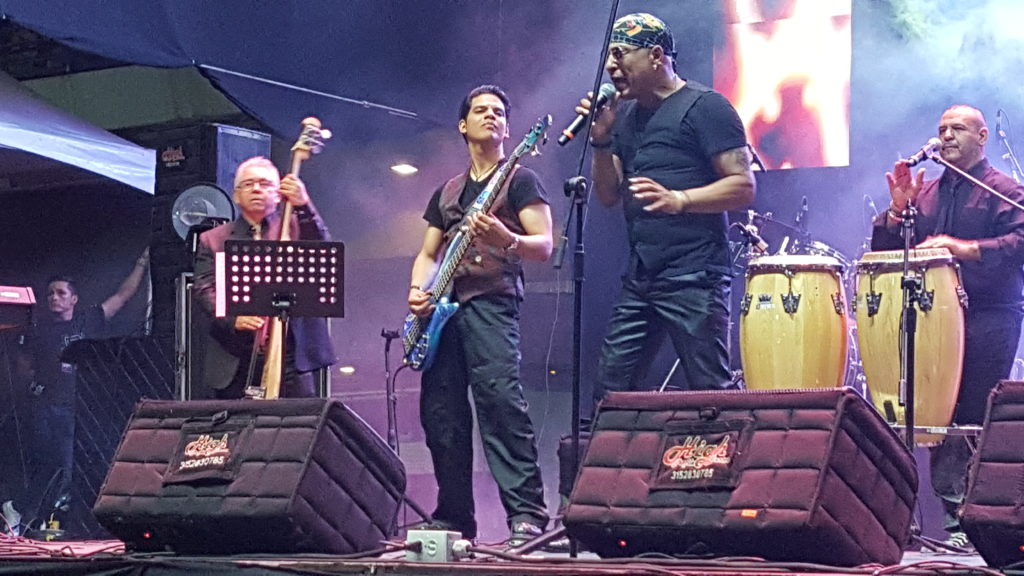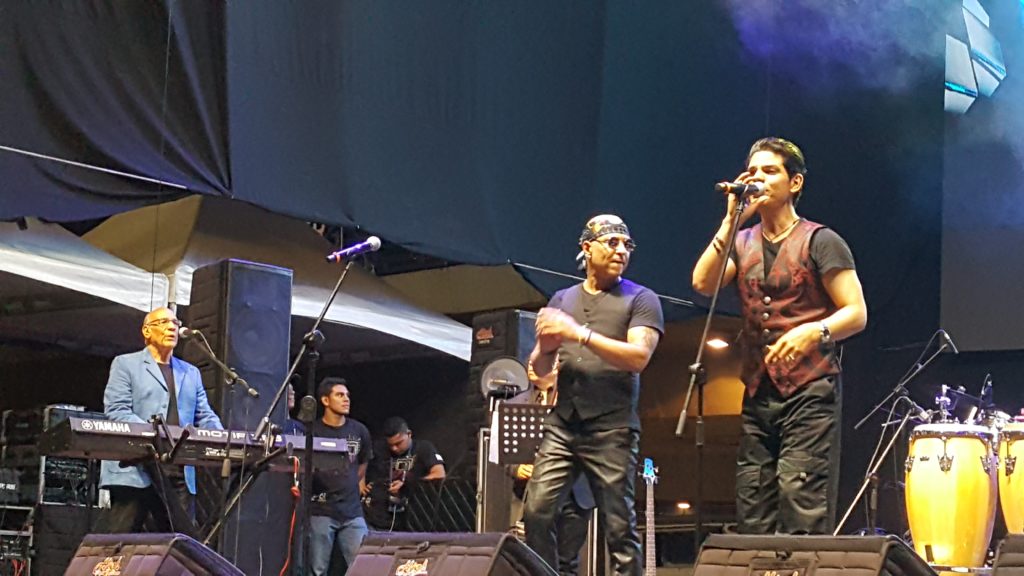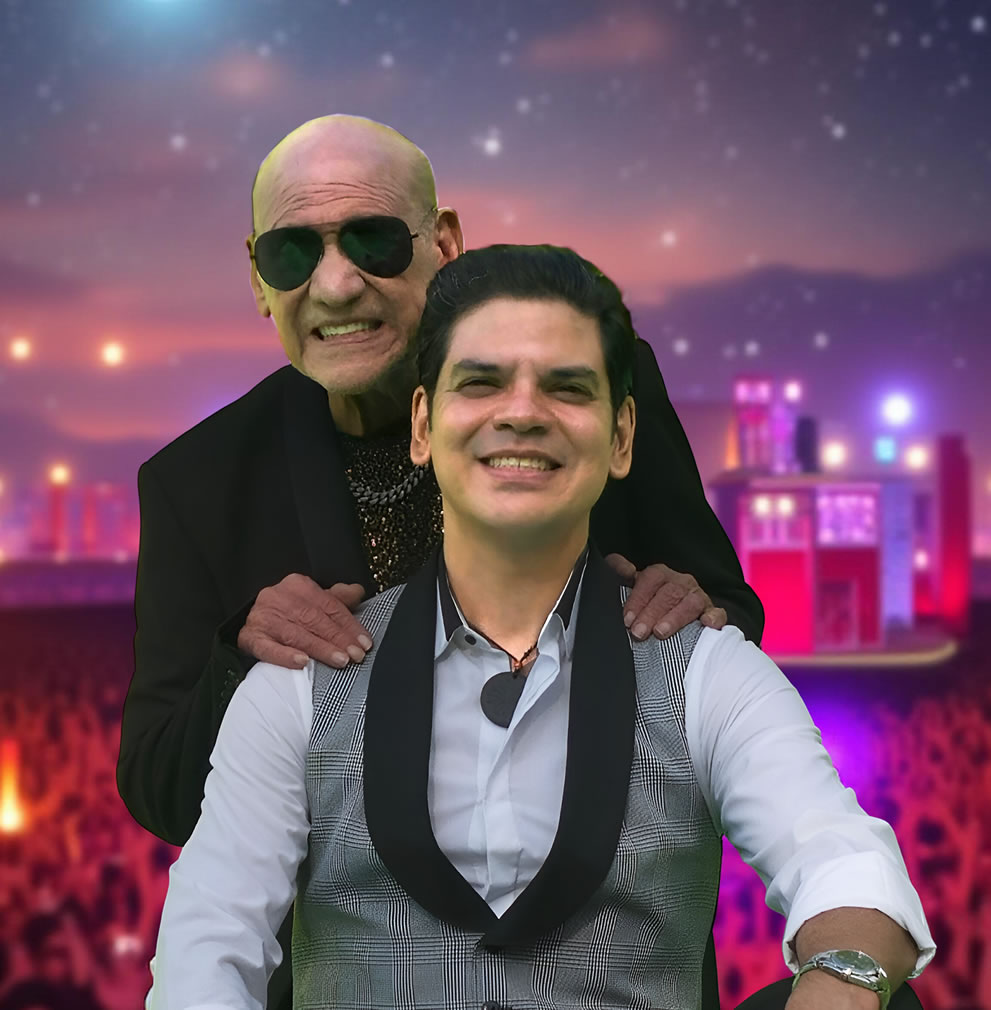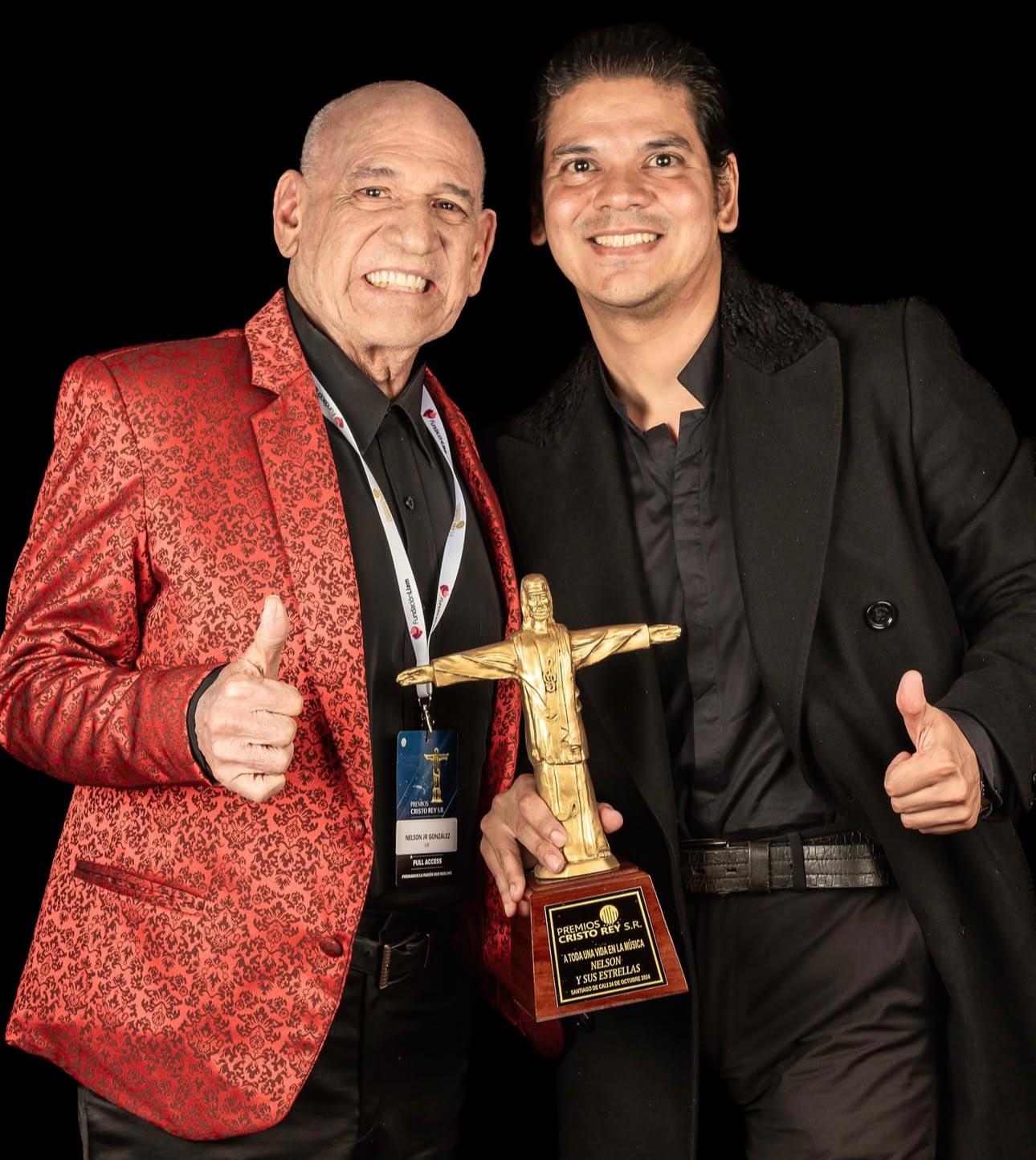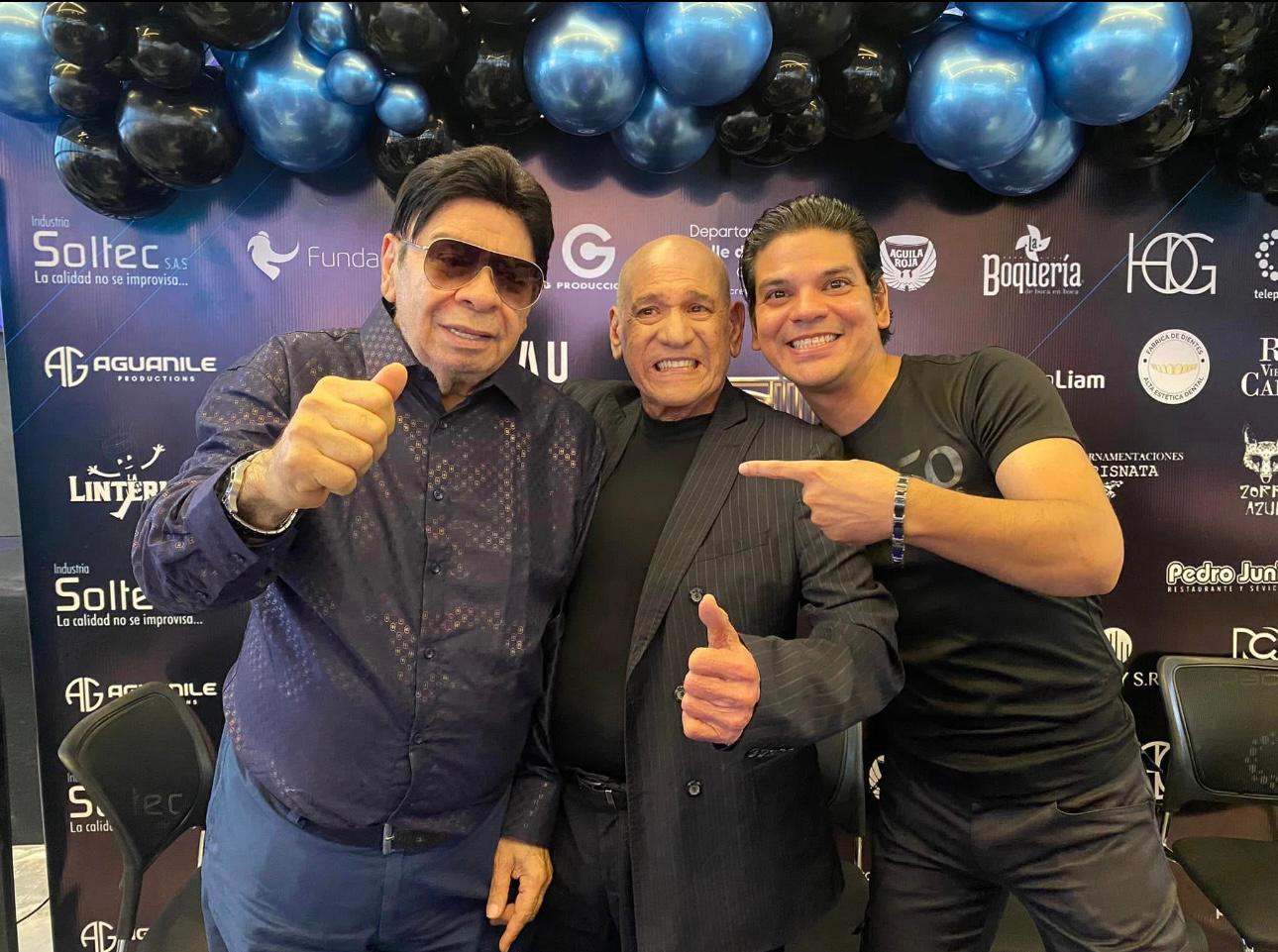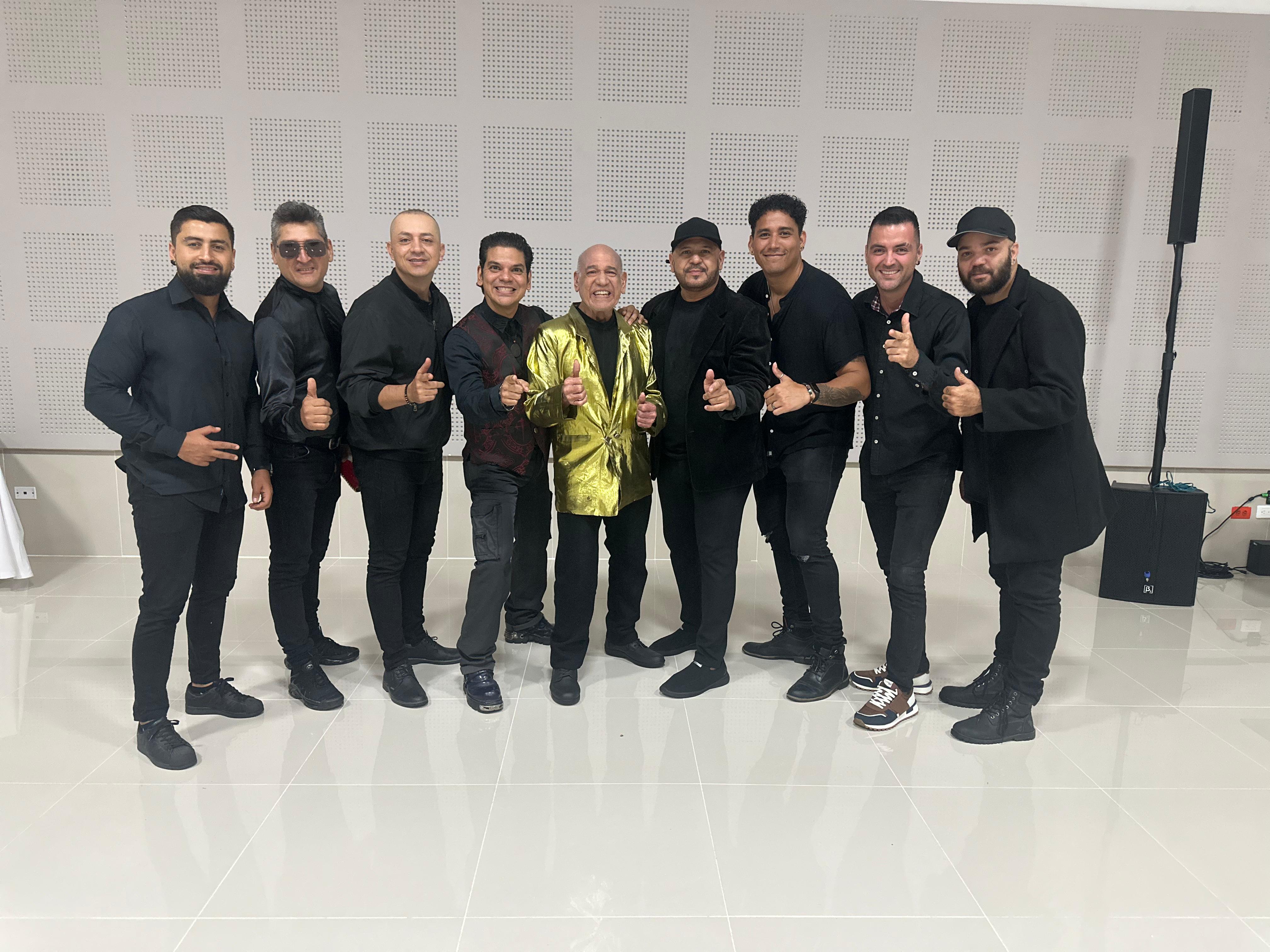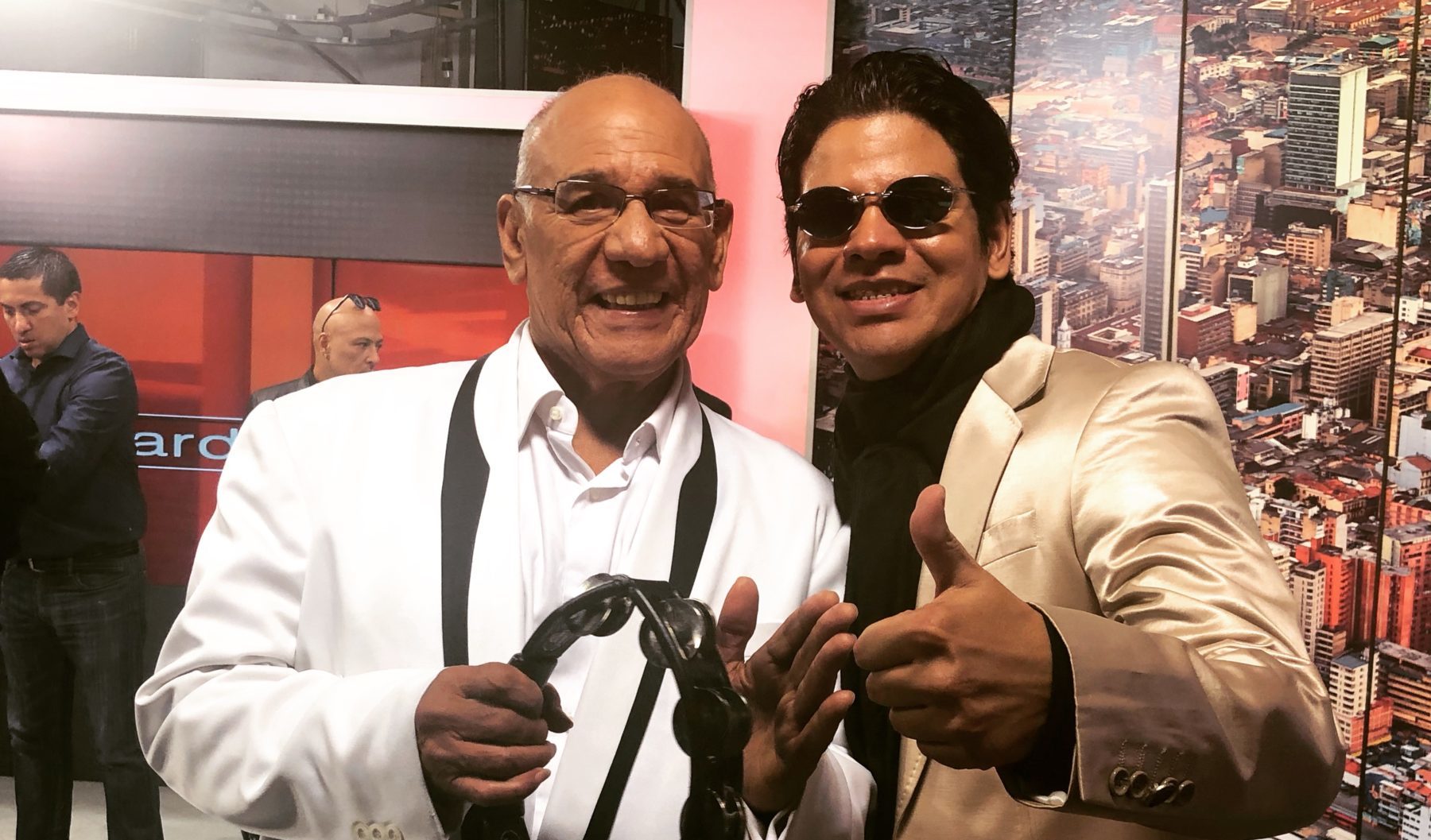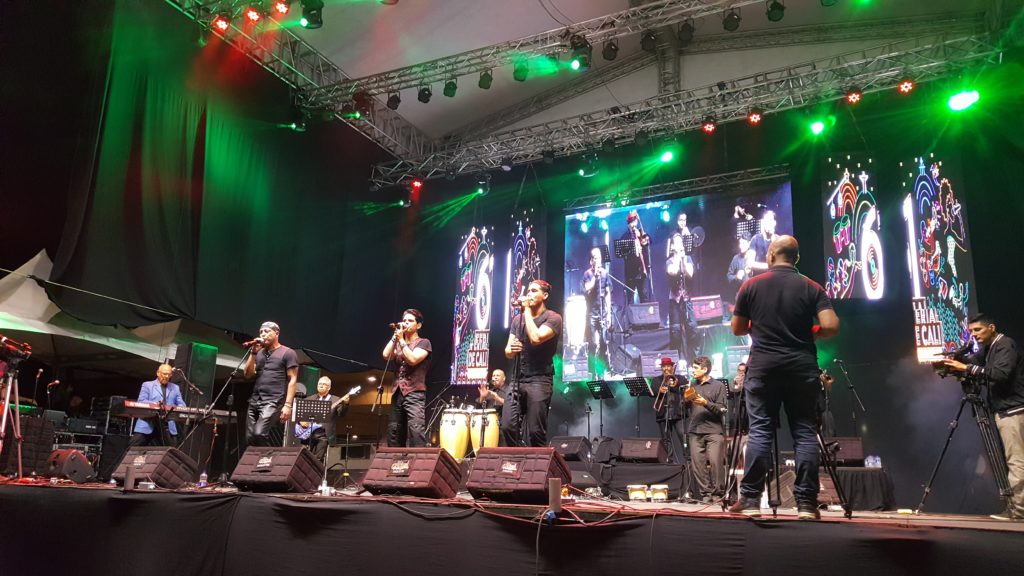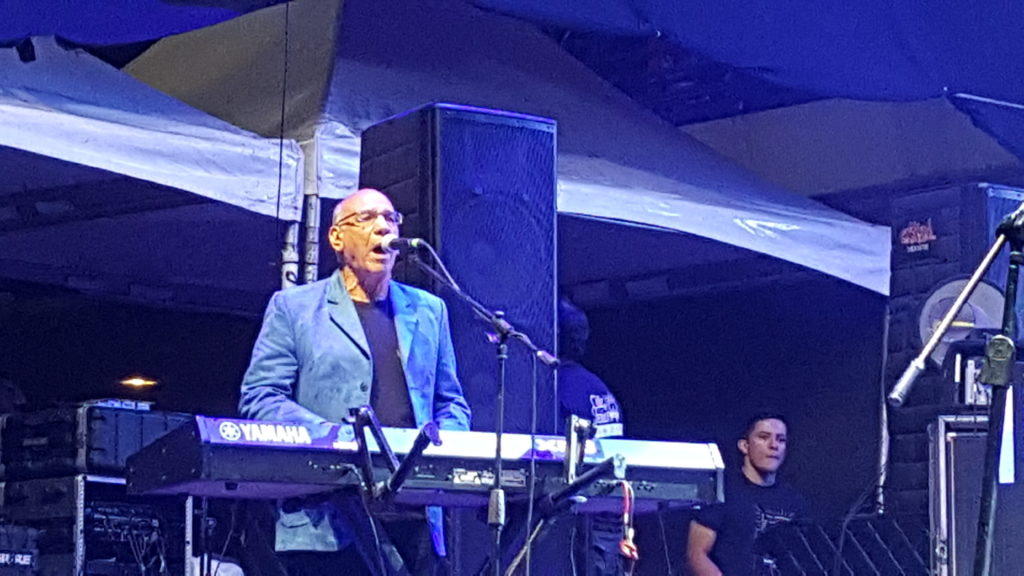Our History and Legacy
Nelson González Rojas, nicknamed by his colleagues as the "Emperor of Salsa" and recognized by Sony Music as one of the best of the Millennium, was a virtuoso Venezuelan pianist and arranger of salsa, tropical music, and other sound expressions. His orchestra, "Nelson y sus Estrellas", created songs that not only highlighted Hispanic American culture but also captured the attention of audiences worldwide. Nelson David González Rojas was born on December 29, 1946, in the popular neighborhood of Catia, in Caracas, Venezuela. From his childhood, he showed exceptional talent for music, self-learning to play the harp, guitar, and piano, which caught the attention of those around him and encouraged him to follow that path. Although he studied mathematics and physics at the Central University of Venezuela, he quickly understood that his true vocation was music. Therefore, he decided to leave his university studies to found, with friends like Edgar Lara, Joe Balsa, and his younger brother Luis Felipe, a small music school that trained young performers and, over time, gave rise to the group "Nelson y sus Estrellas". The orchestra's name was due to the quality of its members, but, above all, to make it clear who the leader was.
In 1966, at just 19 years old and with several even younger members, Nelson and his group released their first album, "Cosa Buena", with the "Palacio de la Música" label. Unlike other novice creators of the time, Nelson did not limit himself to simple imitation, but presented a sound with very distinctive and innovative characteristics. His music was characterized by a special dynamic, changes in rhythm and harmony, unconventional melodies, mixes that seemed strange but fit perfectly, and novel instrumentation: drums, tambourine, a powerful bass played by his brother Luis Felipe (who was also one of the band's lead vocalists), and sometimes the accompaniment of trumpets, alone or mixed with trombones, and occasionally, a charanguero format with violins and flute. Acoustic or electric guitars were also included. Nelson always acknowledged the influence of Dámaso Pérez Prado and the "Sonora Matancera", but in many other cases, he expressed something completely different that, due to its impact, others later imitated, such as "Fruko y sus Tesos" in Colombia and Alfredito Linares in Peru.
The commercial success of "Nelson y sus Estrellas" made it begin to play, not only in Venezuela, but in nearby places like Colombia, with songs like "El ritmo de allá" and "Tema del papelón". For this reason, Nelson was quickly invited to play with his orchestra in Colombia, a country that was amazed by these new popular sounds. His debut in Colombia was not on just any stage, but in the middle of the Cali Fair, at the end of 1969, with a legendary performance that has been mythified by numerous writers and creators. There he alternated with the brilliant, innovative, and powerful group of Ricardo Ray and Bobby Cruz. In that presentation at the remembered "Caseta Panamericana", Nelson lived up to expectations, had a one-on-one with Richie Ray, and was consecrated in the memory of the many who still claim to have been there today.
After that powerful performance, "Nelson y sus Estrellas" became a regular group in Colombia, touring its territory far and wide, participating in numerous popular celebrations and releasing, time and time again, songs that played continuously everywhere. This led him to decide to release an album titled "Para Colombia" which included hits like "Canto de la montaña", "Besitos del corazón", "El Emperadorcito", "Cosas del amor", "A Fusagasugá", and "El Sanjuanero". This album demonstrated the deep affection and impact Nelson felt for this country. In fact, Nelson's success in Colombia was so great that, over time, he began to stay more in this country than in his native Venezuela. This was because the record labels he recorded with in Venezuela, such as "El Palacio de la Música" and "Discomoda", had a greater presence in Colombia, which gave Nelson more promotion and, therefore, greater impact and transcendence among the people. Nelson, who did not feign a humility he did not possess, declared that he had been fundamental to the development of Colombian salsa, considering himself the musical father of "Fruko" and the grandfather of Niche and Guayacán.
Despite criticism from some orthodox salseros who saw him as "excessively commercial" for venturing into "tropical music" or "chucu chucu", Nelson understood that he could enter commercially that way. He began to record several "chucu chucus", but with a swing that, if it was the case, became salsero and rock-infused, expressing his own flavor and virtuosity on the piano and his brother Luis Felipe on the bass, in addition to the strength of arrangements that continued to be novel. The strength of cool and very characteristic voices such as those of Joe Balsa, Edgar Lara, Tulín León, Luis Felipe, Franklin Castillo, and César Navas was always key. Every time Luis Felipe González, Edgar Lara, or any other of the band's permanent or occasional vocalists said "Go for it, Nelson", it was known that the piano would unleash and that the slow but tasty rhythm of the seventies porro would become salsero and get people dancing.
"Nelson y sus Estrellas" continued with powerful albums and very successful songs, alternating in Colombia more with Pastor López than with Willie Colón, although always with "Fruko y sus Tesos", a kind of sister group. In addition, they began international tours through Central and South America, and soon after the United States and Europe, where Colombian and Venezuelan communities welcomed him with enthusiasm. In the mid-seventies, Nelson suffered a health crisis due to the asthma that always afflicted him, which made him withdraw from the stage for more than a year. His brother Luis Felipe, with a slightly different format, launched the group "Don Filemón y su Banda", which left the classic song "La Saporrita". Nelson continued performing, although the hits became more spaced out and, by the eighties, he stopped recording as frequently, despite the fact that his "classic" songs were still danced to, becoming characteristic of the so-called "beach music". Possibly, his last hits were "Luna del Río" and "Tócame un porro", from 1984.
Despite this, "Nelson y sus Estrellas", although its performance rhythm slowed down, continued to perform, but without recording new hits and with a level that paled compared to the good old days, with musicians brought together for the respective occasion and voices that were very far from the quality of the original singers. However, Nelson continued to be remembered and, in fact, was repeatedly publicly recognized by mayors and congressmen, who honored him for being an illustrious representative of music in Colombia, which filled him with pride. Nelson was able to capture what was happening and transmit it to different audiences in a faithful, yet original and innovative way, throughout 28 studio album productions. His powerful impact on Colombian society can be seen in the 1973 short film "Cali de Película", directed by Carlos Mayolo and Luis Ospina, which ends with a popular celebration in which the young people of that time happily dance "Payaso".
Maestro Nelson González passed away last Saturday, May 24, 2025, in a clinic in Bogotá, the capital of Colombia, where he had resided for several decades. González's work, flavorful, innovative, original, and modern, which became a classic, is in the memory of most people, especially in Colombia, where it set a standard for playing music that others followed. His music also transcended in his homeland, Venezuela, and some other salsa epicenters such as Peru. Nelson's physical death, at 78 years of age, represents a great loss for those who followed and admired him. However, his last will was clear: that the music and legacy of Nelson y Sus Estrellas continue. Today, the orchestra remains alive, under the direction of its worthy heir, "El Emperadorcito", Nelson David González Jr., who raises the baton to keep the endless rumba going and carry the unmistakable musical message throughout the world. With every note, the legend never dies, and the passion that Nelson D. González ignited continues to flow, honoring his memory and making millions of hearts vibrate.
Sounds that Mark an Era
Our Timeless Hits
- La Sirena
- Payaso
- Londres
- Llorándote
- El Emperadorcito
Unforgettable Moments
A look through the years of performances and special encounters.
On Stage: Upcoming Performances
Connect with Us
Do you have any questions, proposals, or just want to say hello? Contact us!
Contact Information
+57 311 234 23 68
Bogotá, Colombia







